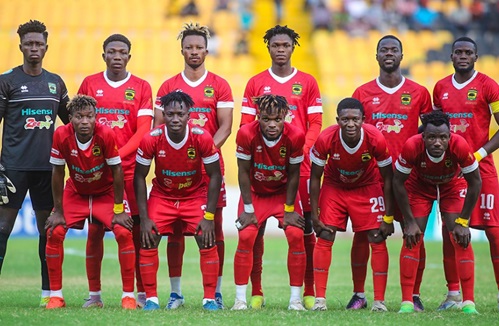Some key stakeholders in the justice delivery sector have undergone a Case Tracking System (CTS) Change Management training in the Volta Regional capital, Ho.
The workshop which was held for the CTS frontline staff of Justice Sector Institutions (JSIs) in the region had staff of the Judicial Service, the Ghana Prison Service, the Office of the Attorney General and Ministry of Justice, Ghana Police Service, and the Legal Aid Commission in attendance.
As these people function as the criminal case docket creators and contributors, the major aim of the training workshop is to provide a platform for the respective key functional processing and supervisory staff to deliberate on workable change management strategies.
Besides, these key people are to recommend the requisite tools that will strengthen the institutions to re-enforce the adoption and utilization of the CTS on behalf of the Government of Ghana.
The one-day workshop under the theme ‘CTS adoption and utilization of re-enforcement strategies and tools for leaders of key stakeholder agencies’ was essential to foster inter-agency agenda for the participant as this will equip them sensitize the people to gain a better understanding of the system components; people, process and technology.
The respective agencies are also expected to adopt the change management strategies to whip up support for the use of the system by their staff as well as their leadership.
What Is Case Tracking System?
The Case Tracking System is an integrated criminal case tracking technological tool tailored to digitize the manual processes and lifecycle information of criminal justice agencies in Ghana starting with the key Justice Sector Institution mentioned above.
The project, which started in 2018 after being launched by Vice President Dr. Mahamudu Bawumia is ensure to the timely and accurate delivery of justice through coordination and information sharing of the state agencies fighting crime as this will go a long way to reduce incidents of missing dockets on some criminal cases.
Being a powerful technological tool, the CTS has features to dig out historical criminal data and its trends across communities, districts, and all regions in Ghana, while employing information sharing for timely, effective and efficient justice delivery.
Another beauty of the Case Tracking System is that it also has the ‘cycle of cases’ capability from the Ghana Police Service or the Economic and Organised Crime Office; to the Legal Aid Commission or the Attorney General’s Office; to the Judicial Service; and to the Prison Service.
One other major advantage of the CTS is that its operational components for accessibility are both online and offline on smart devices.
Key Challenges
Meanwhile, key among the challenges the participants experienced during the piloting process were poor network connectivity and its unreliable availability at their respective stations, lack of accessibility to devices, the lack of operational and ICT know-how, and the people factor that emanates resistance to change for the adoption and utilization of new technology-enabled institutional systems.
However, the participants at the Ho-workshop equally celebrated the system for the smoothness it brought to tracking cases in the beneficiary areas as it presented insight data that showcases the institutional gaps in the manual procedure.
In addition, digitizing their manual work processes in ensuring inter-agency coordination towards the speedy delivery of justice, streamlining information flow between the allied criminal justice agencies, are other benefits the participants acknowledged.
The workshop was organized by the local tech-enabled consulting firm, Inter-Regional Bridge Group (IBG TECH) in collaboration with the Legal Resources Centre (LRC), Commonwealth Human Rights Initiative, and Crime Check Foundation with funding from the United States Agency for International Development Justice Sector Support Activity (USAID JSSA).
About USAID Justice Sector Support Activity
This is activity focuses on sustaining and monitoring the implementation of Ghana’s Case Tracking System (CTS), which is a software instituted by Chemonics International and its partners, aimed at employing technology solutions to track criminal cases from inception until being disposed of.
The initiative which is being implemented in forty (40) target Districts in seven (7) Regions of Ghana combines mutually complementary methodologies including Rights-Based, People-Centered and enhanced Social Accountability Approaches based on lessons learnt in the justice space. The regions which the piloting took place are; Greater Accra/Tema, Volta, Northern, Ashanti, Bono, Western, and Upper East.
It aims at ensuring that marginalized communities through public mobilization and innovative education programs are aware of and supported to track progress of the delivery of the CTS.
Demanding Accountability
The Activity also focuses on the monitoring and advocating for the utilization of the CTS by targeted key Justice Sector Institutions (JSIs) namely; Ghana Police Service, Ghana Prisons Service, Attorney General’s Department, Legal Aid Commission, Economic and Organized Crime Office and Judicial Service, mobilizing Citizen Monitoring Groups (CMGs) to monitor the CTS, its process, facilitating demand for its accountability, functionality, and responsiveness by relevant State Institutions, promoting legislative and policy reform, and advocating better coordination among the key JSls and civil society.
Source: 3news






